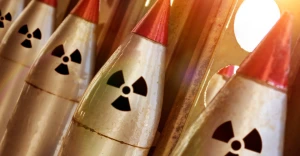
Should we conduct elections in Ukraine during wartime?
Lately, there has been a lot of talk about whether elections could take place, even when a country is under martial law. The people of Ukraine have a clear stance on this right now: elections should happen after Ukraine wins
A sociological study conducted by the Ukrainian Institute of the Future in the first half of August 2023 has confirmed that many people have a specific view on election timing. Around 76% of the participants in the survey believe that the presidential elections should be held after Ukraine achieves victory. Regarding elections for the Verkhovna Rada, 61% of respondents shared a similar opinion, and 56% held this view concerning elections for local councils and positions such as village, township, and city heads. Interestingly, there were no significant differences in the responses based on gender, age, or region of residence.
During a visit to Kyiv on August 23, American Senator Lindsey Graham stated that elections in Ukraine should take place next year, even amid ongoing conflict. Previously, PACE President Tiny Kox also discussed the potential of holding elections during times of martial law. These foreign politicians likely base their statements on international guidelines. For instance, Article 3 of the additional protocol to the European Convention on Human Rights emphasizes the commitment to conducting free elections at reasonable intervals through secret ballots, ensuring the people's opinions are fairly represented. Similar principles about periodic elections are present in the OSCE's Copenhagen document. Additionally, international guidelines underline that elections should occur in a safe and free environment for both voters and commission members.
Different countries have approached elections during wartime differently. For instance, during World War II, Great Britain did not hold elections, whereas Israel serves as a counterexample by conducting elections despite ongoing security threats. In the 21st century, Iraq and Afghanistan held elections despite not having full control over all territories.
Ukraine's Law on the Legal Regime of Martial Law explicitly prohibits holding elections during such periods. According to the current election code, the Central Election Commission (CEC) must initiate the election campaign within 30 days following the end of martial law. Additionally, Article 83 of the Ukrainian Constitution allows for the extension of the Verkhovna Rada's term if its mandate concludes during martial law. Some legal experts interpret this to mean that after August 29, 2024, the existing parliament will continue to function until martial law ends. While legislative changes can be made during times of war, altering the Constitution during martial law is prohibited.
President Volodymyr Zelenskyy, in his interview, discussed challenges hampering the organization of elections. Ensuring citizens' safety amid ongoing hostilities is the primary concern. Additionally, funding the elections poses a significant challenge due to budget deficits in Ukraine. The participation of Ukrainian refugees in European countries is also a major issue, as voting solely at diplomatic facilities won't cover the 5 million eligible voters. Online voting and mail-in ballots raise concerns among voters and opposition parties. Conducting voting outside diplomatic missions requires coordination with governments in host countries and addressing legal hurdles.
Working groups, consisting of representatives from the CEC, parliament, and experts, are devising solutions for these tasks, including updating the voter register and potential changes to the electoral system. Given the large number of temporarily displaced individuals (5 million), the closed party list system for a nationwide electoral district is likely for the upcoming parliamentary elections.
Politicians can only proceed with a political decision to conduct elections once all these organizational matters are addressed. However, experts are the ones responsible for ensuring the technical and legal preparedness for elections. The ongoing efforts to formulate a model for elections in a wartime or post-war context do not necessarily indicate an imminent need for their implementation.
A political decision must also align with public consensus. If the war continues for years and the current parliament struggles, shifts in public sentiment might occur. Even in such circumstances, any escalation on the frontlines could lead to election postponements.
It's crucial to recognize that upcoming elections won't resemble familiar processes. The history of election controversies and result doubts has led to a rigid administration and control system. Many norms from past laws still persist. Elections conducted in a post-war or wartime scenario will markedly differ. The conditions will not be ideal either for voters or candidates. However, it is crucial to uphold political competition and transparent campaigning. The internet, having already surpassed television in Ukraine, will emerge as the principal platform. This challenge can usher in a new type of election, adapting to digitization and modern communication tools. Voting itself might remain traditional, but registration, campaigning, and communication with candidates will leverage streams, chats, bots, and online services.
Ultimately, the decision on the necessity and timing of elections rests with the Ukrainian people. The authorities will provide legal support in line with the Ukrainian Constitution and security considerations.
Special for Espreso
About the author. Ihor Popov, political scientist, Ukrainian Institute for the Future
The editors do not always share the opinions expressed by the blog authors.
- News














































